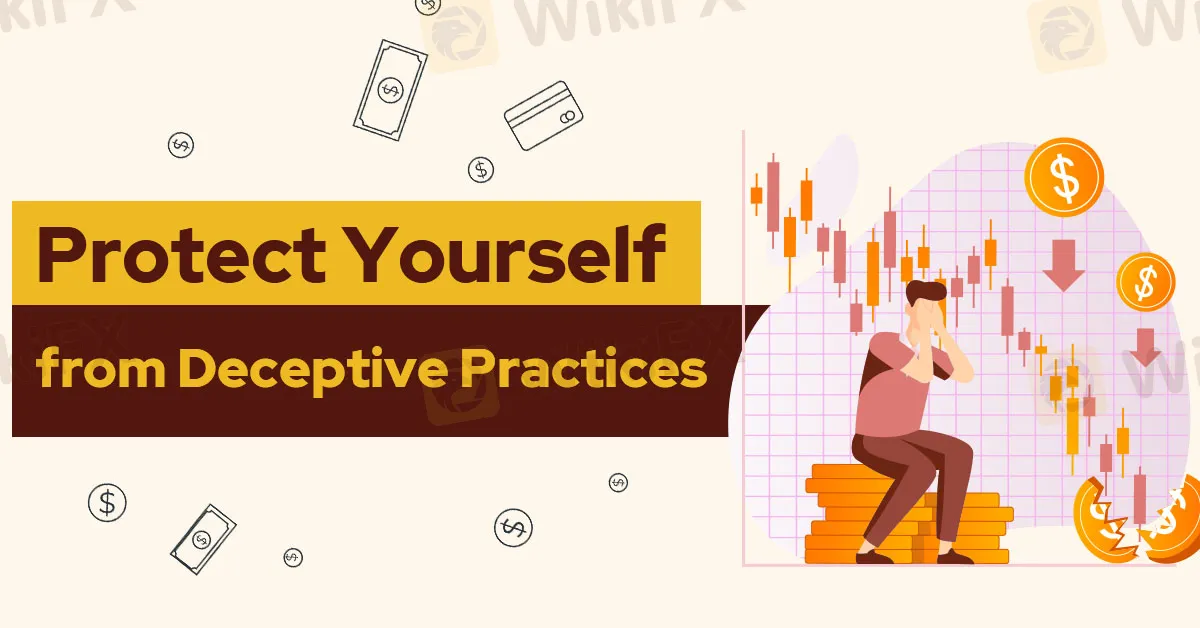简体中文
繁體中文
English
Pусский
日本語
ภาษาไทย
Tiếng Việt
Bahasa Indonesia
Español
हिन्दी
Filippiiniläinen
Français
Deutsch
Português
Türkçe
한국어
العربية
Protect Yourself from Deceptive Practices
Abstract:In this comprehensive exploration, we'll dissect common indicator scams, unveil their tactics, and highlight the crucial role platforms like WikiFX play in safeguarding traders from the shadows of deception.

The forex market, renowned for its vast opportunities, is not without its pitfalls. In Europe, traders face a persistent threat from indicator scams, enticing promises of extraordinary profits that often lead to financial losses. In this comprehensive exploration, we'll dissect common indicator scams, unveil their tactics, and highlight the crucial role platforms like WikiFX play in safeguarding traders from the shadows of deception.
Identifying Indicator Scams
The allure of quick profits often blinds traders to the red flags of indicator scams. These scams typically involve the sale of trading indicators that claim to possess unparalleled predictive abilities. Promises of foolproof strategies and guaranteed profits are the hallmarks of these deceptive schemes. Traders must be cautious, recognizing that no indicator can guarantee constant success in the unpredictable world of forex trading.
One of the common indicators touted in scams is the promise of a 'holy grail' strategy that can outsmart the market consistently. These claims prey on the desire for easy wealth, trapping unsuspecting traders in a web of deceit. It is crucial for traders to approach such promises with skepticism, conducting thorough research before investing in any trading indicator.
The Role of WikiFX
Amid the prevalence of scams, traders need a reliable ally to navigate the complex forex landscape. WikiFX emerges as a crucial player in this role, offering a comprehensive platform that empowers traders with knowledge. By providing in-depth reviews and ratings of brokers and trading software, WikiFX acts as a shield against deceptive practices.
WikiFX's platform is a treasure trove of information, enabling traders to access unbiased reviews and ratings of various indicators. This transparency is invaluable in making informed decisions and avoiding the pitfalls of scams. Traders can delve into the details of each indicator, understanding its strengths and weaknesses, and, most importantly, whether it lives up to its grand promises.
The platform's commitment to transparency extends beyond individual indicators. WikiFX provides comprehensive reviews of brokers, ensuring that traders can choose reputable partners for their trading journey. The combination of broker and indicator reviews makes WikiFX a one-stop-shop for traders seeking trustworthy information in the complex forex environment.
Visiting WikiFX is not just a precautionary measure; it's a proactive step towards becoming a well-informed and empowered trader. The platform's user-friendly interface ensures that even those new to forex trading can navigate the wealth of information available.
In conclusion, as the forex market in Europe continues to evolve, the threat of indicator scams persists. Traders must arm themselves with knowledge and caution to protect their hard-earned investments. Platforms like WikiFX play a pivotal role in this process, offering a haven of transparency and information. Visit WikiFX today, empower yourself with knowledge, and navigate the forex market with confidence, steering clear of the shadows cast by indicator scams.

Disclaimer:
The views in this article only represent the author's personal views, and do not constitute investment advice on this platform. This platform does not guarantee the accuracy, completeness and timeliness of the information in the article, and will not be liable for any loss caused by the use of or reliance on the information in the article.
Read more

Should You Beware of Forex Trading Gurus?
Know the reality behind forex trading gurus, examining their deceptive tactics, inflated promises, and the risks associated with trusting them for financial advice.

Webull Launches SMSF Investment Platform with Zero Fees
Webull introduces commission-free SMSF trading, offering over 3,500 US and Australian ETFs, with no brokerage fees and enhanced portfolio tools.

The Ultimate Guide to Automated Forex Trading in 2025
Modern markets are revolutionized by automated trading systems, which now execute 70-85% of all transactions. These advanced automated trading software solutions, commonly called trading robots or Expert Advisors (EAs), leverage algorithmic precision for automatic trading across forex, stocks, and commodities 24/7. By removing emotional interference and executing trades in microseconds, auto forex trading platforms create fair opportunities for all market participants. For those new to automated trading for beginners, these systems provide disciplined, backtested strategies while significantly reducing manual effort.

How Reliable Are AI Forex Trading Signals From Regulated Brokers?
Discover how reliable AI Forex trading signals are and why using a regulated broker boosts their effectiveness. Learn key factors to evaluate accuracy and enhance your trading.
WikiFX Broker
Latest News
Exposing the Top 5 Scam Brokers of March 2025: A Closer Look by WikiFX
Gold Prices Climb Again – Have Investors Seized the Opportunity?
Webull Launches SMSF Investment Platform with Zero Fees
Australian Regulator Warns of Money Laundering and Fraud Risks in Crypto ATMs
The Withdrawal Trap: How Scam Brokers Lure Victims into Paying More
FCA to Investors: Think Twice Before Trusting These Brokers
Trump\s tariffs: How could they affect the UK and your money
Trump gambles it all on global tariffs he\s wanted for decades
HTFX Spreads Joy During Eid Charity Event in Jakarta
How Will the Market React at a Crucial Turning Point?
Currency Calculator







